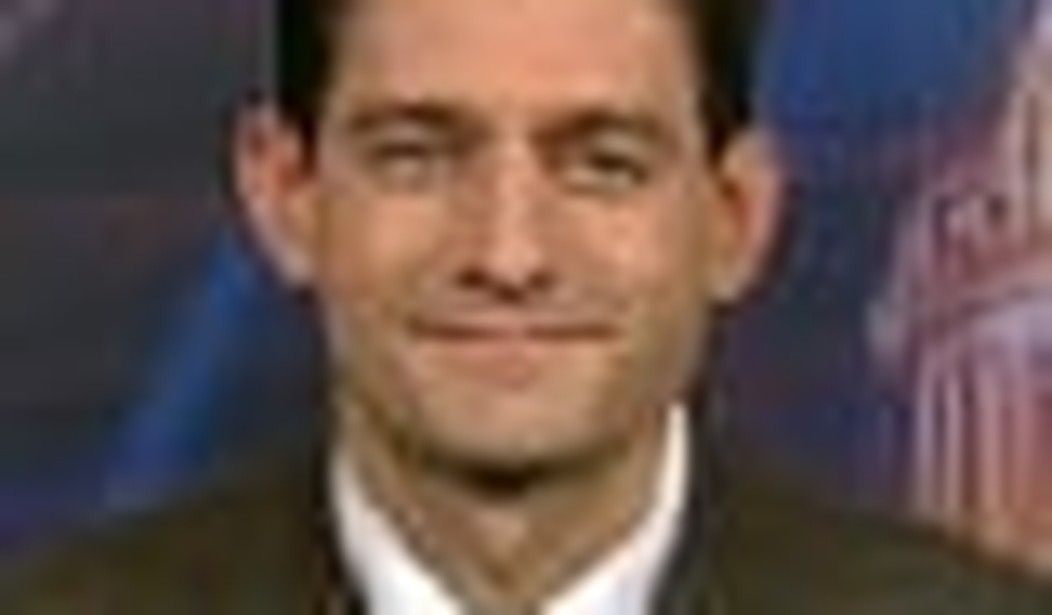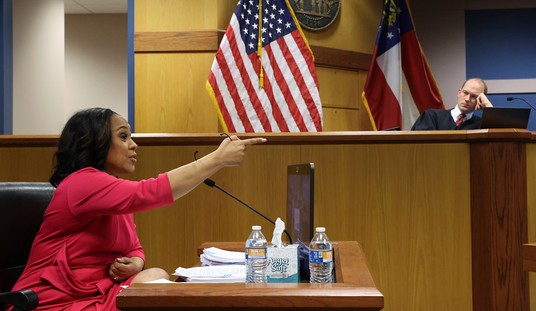A recent NBC/Wall Street Journal poll finds that more than half (53 percent) of those who plan to vote in the Republican presidential primaries are self-described Tea Party voters. The preferences of Tea Party voters will therefore have a great influence on the selection of the Republican presidential nominee.
Moreover, a New York Times poll shows that 30 to 40 percent of Tea Party voters are either independents or Democrats, and the Hill writes that a poll conducted by a Republican outfit confirms the Times’s tally. Thus, even if a candidate were to squeak out the Republican nomination without widespread Tea Party support, he or she would suffer from a two-fold disadvantage in the general election: a large number of Republicans wouldn’t be very enthusiastic about their nominee, and those independents who are Tea Party voters — or who share Tea Party sympathies — wouldn’t be, either.
But despite the results of the 2010 election and the continued primacy of the three interconnected issues that most drove it (1. ObamaCare, 2. the economy, 3. excessive spending and debt), the importance of the Tea Party doesn’t yet seem to have fully take root in the calculations of commentators.
David Brooks writes that Mitch Daniels “would be the party’s strongest candidate for the presidency.” But because he seems skeptical that Daniels will run, Brooks says, “I really think it’s [already] down to [Tim] Pawlenty and [Mitt] Romney, of the people in front of us”; “it’s really down to these two sort of establishment figures.”
Ross Douthat writes that “the stronger President Obama looks …, the better Romney’s chances of being nominated.”
George Will writes that there are “at most five plausible Republican presidents on the horizon.” He lists, in order, Daniels, Haley Barbour, Jon Huntsman, Romney, and Pawlenty, and says that “the Republican winnowing process is [already] far advanced.”
But how much support do any of these candidates have in Tea Party circles? The 2012 Tea Party Presidential Poll suggests that they have very little.
The poll is being conducted by the same folks who did the Tea Party’s “Contract from America,” and it has several advantages over other polls. Chief among these are that the poll has tallied a lot more responses (almost 2 million to date) than most polls, it shows pictures of the prospective candidates, and it allows respondents to register both favorable and unfavorable impressions. (In fact, for those who saw the Oscar-nominated The Social Network, the poll is much like a seemlier version of the poll devised by Mark Zuckerberg at the start of the movie.)
As I write, the 2012 Tea Party Presidential Poll has tallied 1,876,814 responses, and here are the top-15 potential candidates on the leaderboard to date — along with the percentage of the time that they have won their respective head-to-head matchups in the poll:
1. Paul Ryan, 79 percent
2. Chris Christie, 76 percent
3. Jim DeMint, 73 percent
4. Michele Bachmann, 70 percent
5. Allen West, 68 percent
6. Tim Pawlenty, 66 percent
7. Bobby Jindal, 65 percent
8. Sarah Palin, 64 percent
9. Rick Perry, 64 percent
10. Newt Gingrich, 61 percent
11. Bob McDonnell, 59 percent
12. Herman Cain, 57 percent
13. Mitch Daniels, 56 percent
14. Rick Santorum, 55 percent
15. Mike Huckabee, 54 percent
So, of the five “plausible” Republican candidates listed by Will, not one cracks the Tea Party’s top-5, and only Pawlenty cracks the Tea Party’s top-10. This does not bode well for the ability of these candidates to generate widespread enthusiasm or to unite the party’s establishment and Tea Party wings. Daniels, also on Will’s list, ranks only 13th among prospective Tea Party voters — which seems to strongly contradict Brooks’s notion that Daniels is “the party’s strongest candidate.” Among other candidates on Will’s list, Barbour ranks only 17th and Huntsman 24th.
And Romney? He ranks 22nd in the Tea Party poll, winning only 45 percent of his head-to-head matchups.
The failure of anyone (except Pawlenty) on Will’s list to generate any noteworthy enthusiasm among prospective Tea Party voters supports John Podhoretz’s assertion that, “If Will is right, then the right is in critical condition heading into 2012.” Perhaps surprisingly, Brooks and Douthat both seem to agree. Brooks says that (without Daniels) it is an “extremely weak” field. And Douthat ominously writes, “Just because the Republicans seem to need a better candidate than Mitt Romney doesn’t mean they’ll get one.”
But Podhoretz seems more optimistic, writing:
So what does this tell us?It tells us that the person who can win has either not reached the point of deciding to run or that he is biding his time until later. It could be Chris Christie. It could be Paul Ryan. It could be Marco Rubio. It could be Bobby Jindal. One hears that the 2016 GOP race will feature all these guys in a superstar battle. If that one could, so could this one. And there’s plenty of time. Plenty.
Douthat echoes this sentiment, writing that “it’s quite likely that the eventual Republican nominee will enter the lists very, very late.”
So let’s look back to the top of the Tea Party list. Paul Ryan is winning nearly four out of every five of his head-to-head matchups. No Republican is more respected on Capitol Hill, has done more to combat ObamaCare, or has presented as many bold, sensible, and innovative ideas for getting our nation back on a path toward liberty, prosperity, and fiscal solvency.
Ryan is articulate and likeable. He is accustomed to advancing conservative principles while winning elections in a swing district in the Milwaukee area that went to Obama. And his age — he would be the same age (42) in early 2012 that John F. Kennedy was in early 1960, with exactly the same number of years of experience on Capitol Hill that JFK had — would be far more of an asset than a detractor in a head-to-head matchup with Obama. When was the last time that a Republican lost because he was too young and vibrant?
Christie, the runner-up on the list, is a former prosecutor and (like Ryan) a man who Obama doesn’t want to have to face on the campaign trail or the debate stage. Christie, of course, has made a name for himself with his principled, plain-spoken, no-nonsense manner of taking on public-sector unions. He has won election in a Democratic state and would be very difficult for Obama to beat.
Both men care greatly about their country and are watching the GOP field take shape. Both are aware of the unusually high stakes this time around. Both enjoy clear Tea Party and establishment support and can unite the Republican Party and lead it to victory.
As the 2012 Tea Party Presidential Poll shows, momentum is building behind these candidates. If that momentum keeps building — day by day, block by block, citizen by citizen — Barack Obama will likely become a one-term president.









Join the conversation as a VIP Member